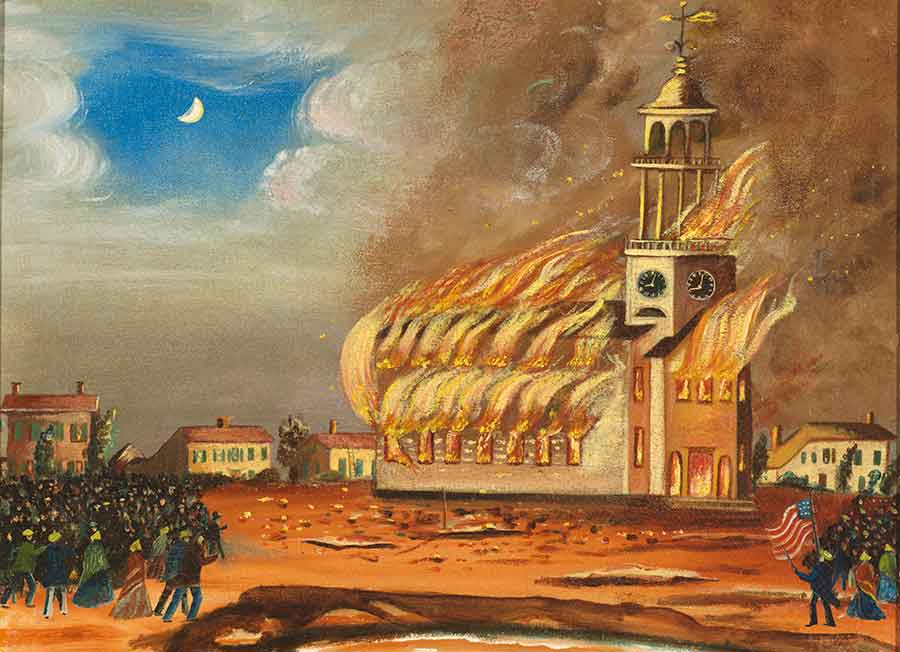The final post on this topic. As the title suggests, I want to spend time reflecting on what I am talking about when I speak of God ‘refining’ the church from the last post.
A very quick look at church history makes clear that the church is far from perfect, nor is it any closer to perfection now than it was in the beginning. There are ups and downs, ebbs and flows to the life of the church where we move between times where everything seems to be going right to times when nothing does. Progress in holiness does not follow a steady and constant upward trend. That being said, as we take the big-picture view of the life of the church, we can see that God uses difficult times to ‘refine’ the church.
If we look up the definition of ‘refine’ in a dictionary, its most basic understanding is “to free … from impurities or unwanted material” and the examples often listed are metal, sugar, and oil. Thus, when we speak of ‘refining’ something, we are speaking of a process of removing what makes it less pure.
The early church went through a number of ‘refining’ processes as it wrestled with various heresies about Jesus’ human and divine natures, salvation, and the Trinity. It did this by removing and condemning incorrect teachings on these matters, while at the same time clarifying its own understanding of the biblical teaching on the same. This has continued to be the case with the church throughout all of history, even if we don’t always get it right. It is a process of discernment.
An unintentional and unfortunate by-product of these discernment processes is that it can, at times, lead to arrogance from those who believe they “have it right” and a condescending tone towards those who disagree with them. This is not to say that there aren’t important teachings that we must hold dear and as essential to what it means to be a Christian (e.g. that Jesus is God), but we need to exercise wisdom and humility in the areas where it is not as clear what is essential to our identity and belief.
This “arrogance” often reveals itself in the belief that “our church” is the “true church” and “that church” over there is not. And although in some cases there may be truth to it, it is not always clear whether it is “those who leave” or “those who stay” who represent that which is a more accurate representation of biblical Christianity. But I would like to suggest that maybe this is a false dichotomy.
Consider the Protestant Reformation as an example. The Reformation came about because (among many other factors) some leaders in the church, upon reading the Bibles for themselves, came to believe that the Roman Catholic church at the time was in error in several of its teachings and practices. The original intent of the Reformers was to Re-form the church and bring it back to a closer representation of the early church as described in Scripture. However, when it became clear that the Church would not incorporate many of the suggested reforms, a split occurred and the Protestant churches were born (Protestant comes from the word protest). Many Protestants (e.g. Lutheran, Reformed, Baptist, Mennonite, etc.), would look back on that moment in history and would not hesitate to say that the “true church” was the one that “left”. There are, however, some problems with this view.
Firstly, this view fails to consider the fact that the Protestant Reformation did eventually bring about some significant reforms to the Roman Catholic Church, even if they did not go as far as some of the original Reformers would have hoped. At the same time, few today would argue that these reforms are of little or no benefit to the Church as a whole. A second item this view fails to consider is the Eastern Orthodox church. Much earlier than the Protestant Reformation, another split occurred in the Church between the Roman Catholics in the West, and the Orthodox in the East. I don’t have space here to get into all the details of how and why that separation came about, but what is important is to highlight the contributing and resulting perspectives of these two branches of the church: namely that both thought the other in error and their own tradition as a representation of the “true church. They cannot both be right, or can they? What if the same was true of the Protestant-Catholic split? I’m not saying here that we’ve all got it wrong, but rather that our perspective is limited by our humanity. It may very well be not for us to know this side of eternity. Yes, there are central truths that we must hold to be called ‘Christian’, but maybe we ought to shy away from suggestions that one way of living or being the church is more Christian than another.
Okay, so what does this have to do with “refining” the church? In short, the church has gone through and continues to go through challenges and struggles. This has been the case since Pentecost and will continue to be so until Christ returns. As I said in the first post in this series, the problem is not with the institution, but the fact that it is made up of sinful and broken people – and that too will never change until Jesus returns. When it comes to having a healthy perspective on our challenges and difficulties, we should be very careful about dividing the church into camps of “true” or “right” vs. “false” or “wrong”. Rather, we should take the perspective of “God is trying to reveal something to us through this; He is trying to shape us or challenge us in some way”. When we take this view, it is a lot harder to place blame on others and forces us to take responsibility for ourselves. Maybe it means changing our opinion, or letting go of a particular idea or practice we hold dear that is not essential to the faith. And that, is the definition of ‘refining’.


Recent Comments